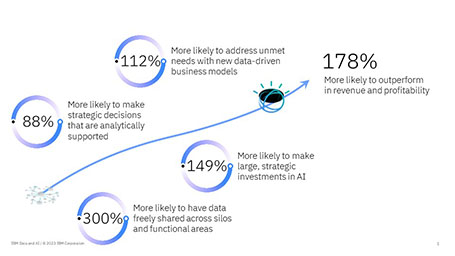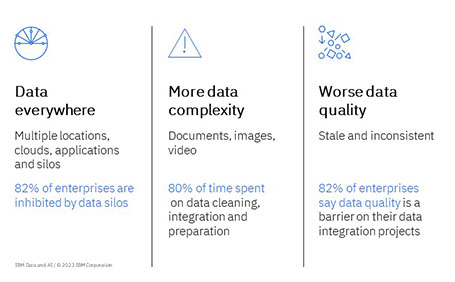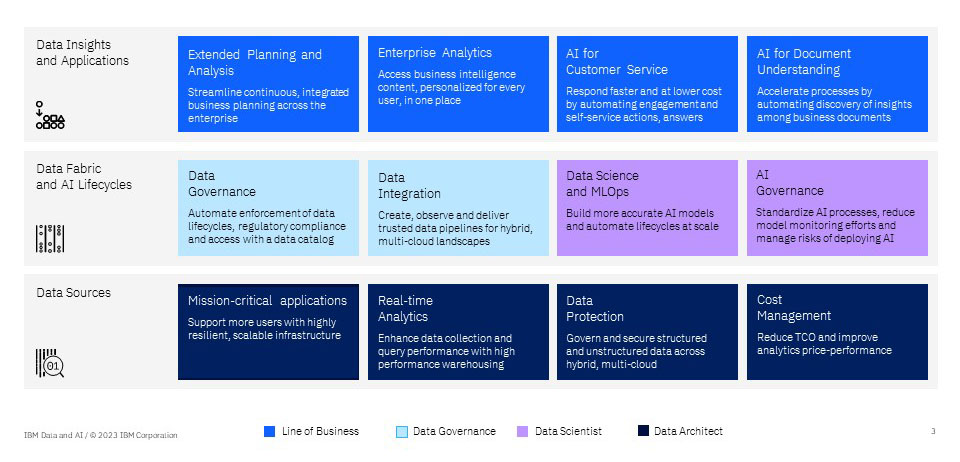IBM India/South Asia Blog
How can organizations overcome data challenges?

By Siddhesh Naik
Over the last couple of years, enterprises across the spectrum have been adopting digital technologies at an accelerated pace leading to an explosion of data being generated every second.
Hence, in every industry, a key predictor of success today is the degree to which an organization can understand the data that’s available to them and how to leverage it. Whether it is to grow revenues, reduce costs, increase customer retention, and improve loyalty, or efficiency across the value chain.
In short, every company is a data company now or will become one!
Let’s first understand what it means to be data-driven. Data-driven organizations use data in a manner that informs decision making, and strategically addresses unmet needs with new data-driven business models.

As Mansi Sharma, Finance IT Lead, HUL and Unilever South Asia puts it, “Being data driven today means having an appreciation of data as a strategic asset and to be able to use data for improving your day-to-day operations.”

In fact an IBM Institute of Business Value Study of 13,000 c-suite leaders, emphasizes on this perspective having found that data has become inextricably entwined with trust and performance. Those businesses that are more data-driven (called Torchbearers in the study) outperform their peers in revenue growth, profitability, innovation and managing change.
The bottom line: Businesses must outperform their competitors on data or risk being outperformed by them.
Mansi added, “the three key tenets of a data-driven organization are having a culture of data literacy, data democratization, and the ability to operationalize data.”
However, there are a few fundamental data challenges which inhibit enterprises from becoming truly data driven.

Data volume: The enterprise data volume continues to rise, with some industry estimates suggesting a growth of 2-3x growth in total data by 2025.
Data complexity: It is important that organizations understand what data they have, where it resides and how it can be used. Per IDC, 60–73% of all data is unused.
Data quality: Only 20% of business executives completely trust the data they get.
Mansi summarized the key data challenges that need to be addressed, “having a right mix of skills and business acumen, ability to integrate data from multiple sources at one place and creating a strong governance mechanism around data.”
Now, the key question is, how do you overcome these challenges?
To overcome these challenges, organizations need to create a way to access data wherever it resides while managing the demands of compliance, security and governance risks, at the same time as identifying real-time insights that will drive the business forward.
To put it in fewer words, you need a new architecture to be a data-driven organization.

Data fabric is that architectural approach that simplifies data access in an organization. It is an an abstraction layer to share and use data across a hybrid cloud landscape.
As Mansi puts it, “to overcome these data challenges, you need to have a clear data strategy, and then work to get a robust data layer in place to operationalize your data.”
A data fabric allows an organization to:
- Integrate data across any cloud: In this day and age, it is important to connect data from disparate sources in multicloud environments and deliver it to teams anytime, anywhere. Read more about how the data fabric approach with solutions like IBM Data Stage enables multi-cloud data integration.
- Automate data governance at scale: Data fabric strengthens compliance with automated governance and privacy controls, while maintaining regulatory compliance no matter where the data resides. Read how strong data governance makes the right, quality data easier to find for those who should have access to it, with building blocks like cataloguing, data virtualization, metadata generation etc.
- Build trustworthy AI models: AI today is essential to success of an organization. Data fabric provides a strong foundation for trustworthy AI, helping automate AI governance to create responsible, transparent, and explainable AI workflows.
In conclusion, irrespective of your industry, target customers or business goals, to be successful in this new digital era, you must embrace being a data company. You need to put data to work across complex digital ecosystems to navigate the unexpected, enhance customer experiences, and uncover new opportunities.
To achieve that requires organization-wide access to previously siloed data, configuring governance policies, and addressing data quality concerns.

Siddhesh Naik, Country Leader, Data, AI & Automation software, Technology Sales, IBM India & South Asia